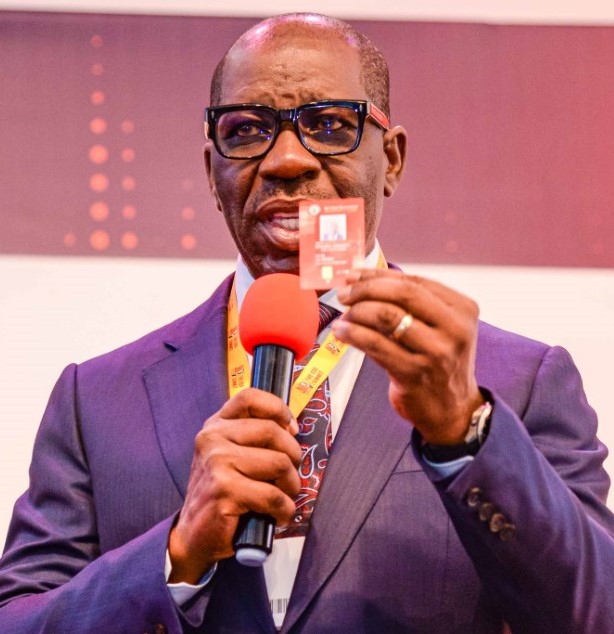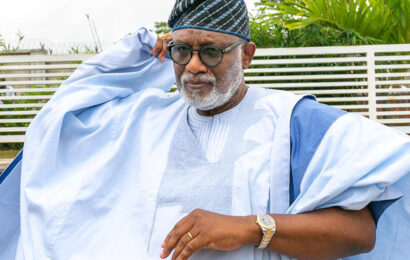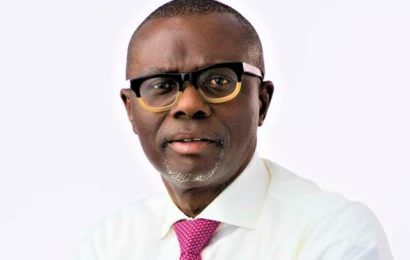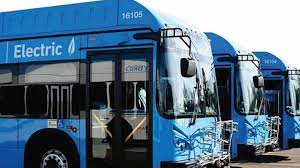

Governor of Edo State, Godwin Obaseki on Friday set an Internally Generated Revenue (IGR) target of N60 billion for 2023 fiscal year in the state.
Obaseki disclosed this during sixth edition of the yearly Alaghodaro Investment Summit in Benin.
The Governor also launched the Edo State Residency Identity Card, with a target to issue one million cards to citizens before the fourth quarter of 2024.
The governor launched the Residency Card at the 2022 Alaghodaro Summit with the theme, “Edo’s Transformation: Partnerships, Resilience, Impact,” taking place in Benin City between Friday, November 11 and Sunday, November 13, 2022.
The summit, in its sixth edition, is organised yearly, in partnership with the private sector, to mark the anniversary of Governor Godwin Obaseki in office and showcase the progress being recorded in transforming the state into an investment haven.

Obaseki said, “Today, we are launching the Edo State Residency Card. We estimate that we have about five million people who live and reside in our state but we don’t know them.
“The purpose of this card, which has been designed in partnership with some of our financial partners, is to make sure that before I leave office, we issue a minimum of one million of this card to our citizens.
“The cards will come in different forms. Some will come with electronic purses to enable people to use them for financial transactions while some will be for students.”
He added, “The policy is that you may not be able to interact with government services in Edo State without the residency card. No child will be accepted in our schools if we don’t know their parents; they all have to be registered as citizens.
“This Residency Card is linked to the National Identity Care under the NIMC scheme. We are using the same algorithm as NIMC to issue this card.’
He further charged, “I urge all citizens of Edo State to go out there to register themselves to be issued with the card. You may not have need for the card physically, but you must have your identity number to enable us to know you.”
“In all your interactions with us, the identity number will be stated. If we don’t know you, you can’t interact with the government. You can’t get land in Edo or health insurance or register your building plans if we don’t know you and where you live in our State,” he noted.
The Head of Service, Anthony Okungbowa Esq., who presented the first identity card to the governor, said the identity card project is one of the numerous developmental and innovative projects embarked upon by the state government.
He noted, “This card will help us plan effectively for the development, growth and progress of the state.”
The Governor noted “In the last six years, things have not been easy, but we have tried in our own little way. You can see that from 2016 when we got in, we tried to increase Internally Generated Revenue (IGR).
“Except for the COVID-19 year, we sustained an increase in our IGR and we hope to end next year with over N60 billion IGR.
“We see growth ahead of us and this growth is going to come from certain endowments that we have which most people do not have.
“Our culture, people must come and see us and admire what our forebearers built and our forestry assets, the world is talking about net zero carbon and we have something to contribute to the environment and environmental economy.
“Manufacturing is the way to go. Edo has the largest onshore gas reserve in Nigeria with most of our gas are in the swamps and the offshore.
“With that energy source, there’s no reason we cannot generate enough energy to attract investors to drive industrialisation.
“Agriculture, that’s what we grew up with. Of our 19 million square km of land, there’s practically no way we cannot grow something.
” For us, the future is technology, because the world is talking about technology and that is the new area of focus,” Obaseki said.
The governor therefore, emphasised on the need for Nigeria to move the economy from consumption to production.
According to him, in spite of all the challenges that are faced as a country, Nigeria has over 200 million people who are going to be 450 million in 2050 and will not stop consuming.
Asue Ighodalo, Chairman of the board of Alaghodaro Limited, in his welcome address, said the summit would present opportunities for key stakeholders and the private sectors to determine how to navigate the challenges facing the nation’s economy.




